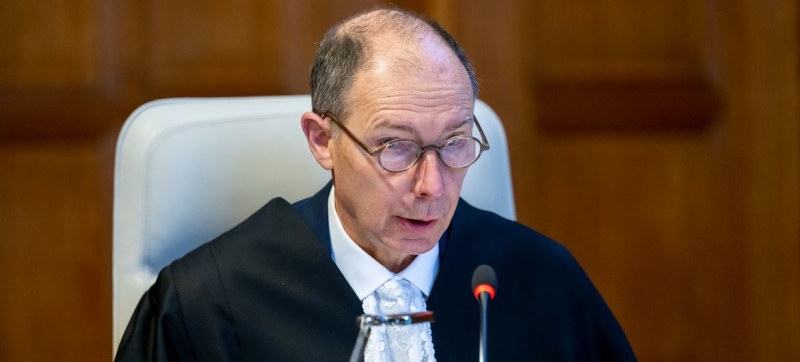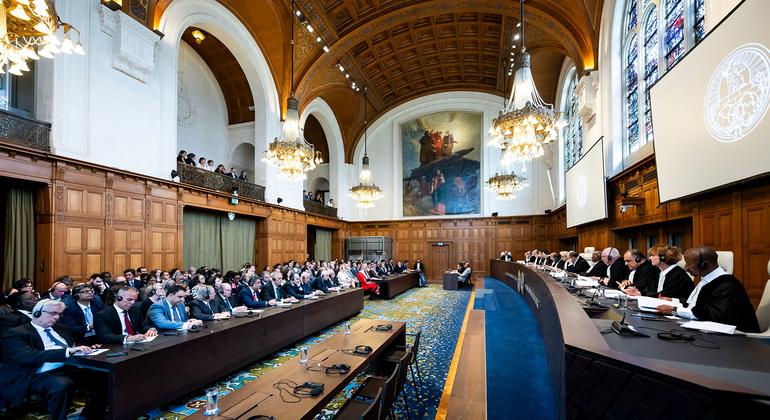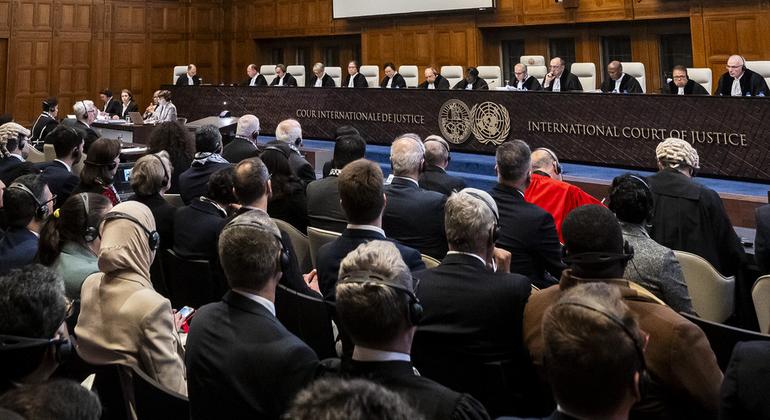
Secretary of the International Court of Justice Philippe Gauthier. INTERVIEW | The International Court of Justice is considering a record number of cases International Law
The International Court of Justice is currently considering an unprecedented number of cases, including in connection with the ongoing conflict in the Middle East. This was stated by the Secretary of the ICJ Philippe Gauthier in an interview with the UN News Service.
He gave a closed briefing to the Security Council on Tuesday. Ahead of the meeting, Gauthier stressed that the UN’s top judicial body must maintain its autonomous and independent role. According to him, as a judicial, not a political body, the ICJ has the necessary tools to settle disputes between states, but not to end the conflicts themselves.
The interview has been edited for brevity and clarity.
UN News Service: Could you please tell us about the Middle East cases currently before the Court?
Philippe Gauthier: The Court is currently hearing a total of 23 cases, an unprecedented number. In the broader Middle East, there are eight cases. Two of them are related to the situation in Gaza, where the Genocide Convention is at the center. There is a case brought by South Africa against Israel, and a case by Nicaragua against Germany. Nicaragua claims that Germany, by supplying weapons to Israel, violates certain provisions of the Genocide Convention and other humanitarian law instruments. There is also a case between Palestine and the United States regarding the relocation of the US embassy to Jerusalem.
Cases that relate to a specific region involve a wider range of countries. This is because in the case of instruments such as the Genocide Convention, each State party to the Convention may consider it its prerogative to ensure compliance.
UN News Service: Can you explain the July advisory opinion on the legal consequences arising from Israeli policies and practices in the Occupied Palestinian Territory?
Philippe Gauthier: The prolonged Israeli occupation and the policies and practices which have deprived the Palestinian people of the right to self-determination affect the legal status of the occupation. The conclusion was that, based on the available evidence, Israel’s presence there was illegal.

The section of the advisory opinion dealing with the responsibilities of the various parties says that Israel should end its occupation as soon as possible, immediately halt new settlement construction and provide full reparation for the damage caused.
The purpose of the advisory opinion is to provide clarification of the law that would provide guidance to those who requested it.
UN News Service: What is the main difference between an advisory opinion and a contentious case like the one South Africa requested against Israel?
Philip Gautier: There is a big difference: when it comes to an advisory opinion, it does not depend on one country. The decision to request an advisory opinion is taken by a vote in the General Assembly. The Court must answer a legal question. And although it has authoritative value and cannot be ignored, an advisory opinion is not legally binding.
Read also:
EXPLAINED | What is the International Court of Justice and how does it work?
Meanwhile, during the trial, a dispute arises between two states. And one or two States jointly decide to submit the dispute to the Court for settlement by a judicial decision which is binding.
The golden rule in contentious cases is that to refer a dispute to the Court you need the consent of both parties, and this can be difficult to achieve.
UN News Service: How do you comment on the fact that the Court has been in the spotlight this year with the ongoing war in Gaza??
Philippe Gauthier: I would say that the Court should act autonomously and independently.
It is important that the ICJ provides legal opinions without taking sides in the political arena. As a judicial body, it can resolve disputes by issuing binding decisions. The court is not a political body. It exists to settle a dispute, not to end a conflict. This must be understood. Otherwise, expectations may be too high.
UN News: Last year, in an interview with UN News, you said that the growing number of cases was a sign of the success of multilateralism. Do you still believe that?
Philippe Gauthier: Of course, otherwise I would not be here. Every time states decide to refer a dispute to the Court, it is a victory. It means that there is hope for the international multilateral system. Five new cases have been filed since last October, and the number continues to rise.

I would also say that there are very encouraging cases because they are brought jointly by two states to end a dispute. For example, there are two sovereignty agreements between Gabon and Equatorial Guinea.
Another good example, which was covered in the press earlier this month, is the agreement between Mauritius and the UK on the Chagos Islands. In 2019, the court issued an advisory opinion and we are seeing progress five years later on the sovereignty issue of the islands.
This demonstrates that the system is working. The court does not act in isolation, but as part of the system. The role of other UN organs and the Secretary-General is crucial to convince Member States to refer disputes to the Court.
UN News Service: Are you concerned about the situation with disinformation and misinformation about the role of the ICJ??
Philippe Gauthier: Of course, this cannot be ignored. When we see what can be done with artificial intelligence technologies, we must take action. It also shows the importance of public communication.
It is important to understand that international justice is a complex topic. A judicial decision cannot be explained in a single tweet. People need to read, analyze information, and understand the nuances.
